K2022 – Chemical-recycling – Textiles-industry 01-03-2022 - Arhive
K2022 – Chemical-recycling – Textiles-industry
A new feature at K 2022, The World’s No. 1 Trade Fair for Plastics & Rubber, will be the START-UP ZONE, offering young and creative start-ups a dedicated presentation area in Hall 8b to present their innovative products and solutions for the plastics and rubber sector. K 2022 will take place from October 19 – 26, 2022 at the fairgrounds in Düsseldorf, Germany.
Currently, young companies can still apply for participation in the START-UP ZONE and take advantage of this unique opportunity to present themselves and their developments and establish international business contacts with a high-caliber expert audience from all over the world K2022 – Chemical-recycling – Textiles-industry
Basic requirements for participation in the START-UP ZONE:
Company less than 10 years old
Number of employees less than 100
Annual turnover less than EUR 10 million
Already registered for the START-UP ZONE are Plastship from Germany, a European marketplace for recycled plastics to promote the circular economy online and offline and HEALIX from the Netherlands, a company that collects nets, ropes and other plastic waste based on synthetic fibers to recycle them into high quality circular polymers for the global production supply chain. K2022 – Chemical-recycling – Textiles-industry
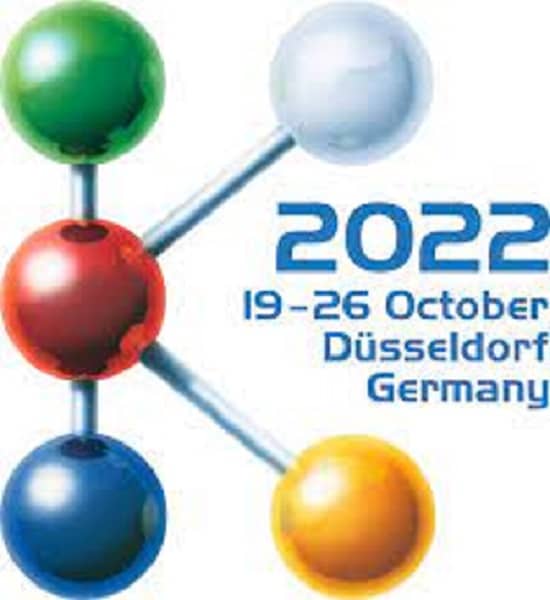
-Big jump in chemical recycling investment
A study of the global chemical recycling industry has shown a dramatic increase in the number of plants being developed. K2022 – Chemical-recycling – Textiles-industry
According to the German consultancy ecoprog, more than 90 projects for chemical recycling of plastics were in various stages of development worldwide at the end of 2021. Currently, only 20 more are in operation, few of which can be considered final commercial plants. Ecoprog, which specialises in in environmental and energy technology, notes in a new report that few topics in the waste management sector polarise opinion as strongly as chemical recycling.
‘For supporters, chemical recycling offers the opportunity to fully recycle plastics in the future without downcycling,’ it says in a press release. ‘In addition, contaminated and mixed waste streams that currently cannot be recycled mechanically should also be possible to be recycled through chemical recycling. Critics, on the other hand, mainly criticise the high CO2 emissions from chemical recycling. They fear that waste streams are being diverted from a more climate-friendly mechanical recycling process in order to be treated in this way.’
The report says the most important driver of the current dynamic market development is the potential of chemical recycling in plastics production, combined with possible recyclable quotas. Those pioneering the technology hope it will be recognised positively in the waste hierarchy although there remain concerns about high energy consumption and uncertain technical issues, particularly the purification of the output from depolymerisation. K2022 – Chemical-recycling – Textiles-industry
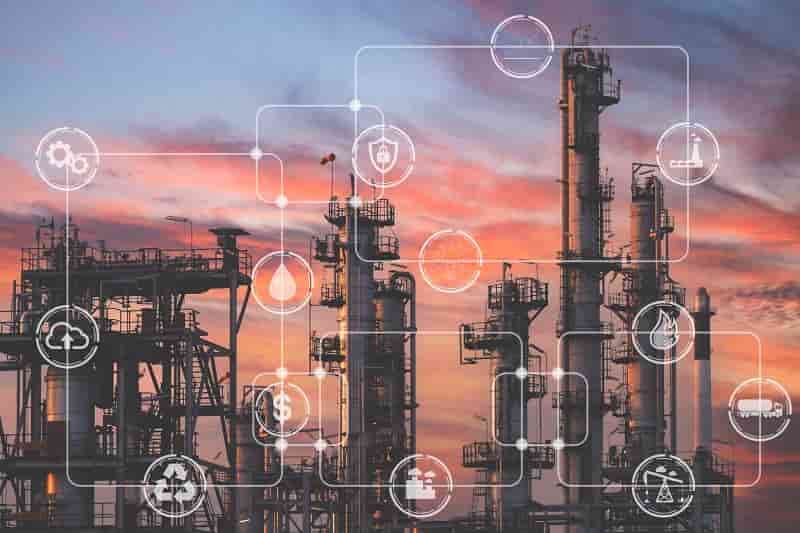
-Meet the science entrepreneur turning the textiles industry green
Colorifix is a biotechnology company based at Norwich Research Park developing a sustainable method of dyeing fabrics that could drastically reduce the environmental impact of the fashion industry. CEO Orr Yarkoni explains how his work is turning textiles green. K2022 – Chemical-recycling – Textiles-industry
What does Colorifix do?
We use synthetic biology to engineer micro-organisms so that they can produce, deposit and fix dyes directly onto textiles. It is a more sustainable dyeing process that reduces water and energy consumption, while completely removing the use of petro and toxic chemicals.
Colorifix was born out of a passion for water quality. In 2012, I joined co-founder Jim Ajioka’s lab at the University of Cambridge to research arsenic contamination in Nepal. We developed a sensor of micro-organisms that would change colour if the water was unsafe to drink. We asked members of the public about how chemicals in the water bothered them. That’s when we were exposed to the impact of the textile industry and how many of the pollutants come from colouring fabrics.
We thought: if we could have micro-organisms that change colour, wouldn’t it be great if we can get them to change the colour of clothing? Instead of monitoring the problem, it could be part of the solution. We’ve taken that concept and applied it in an industrial context. K2022 – Chemical-recycling – Textiles-industry
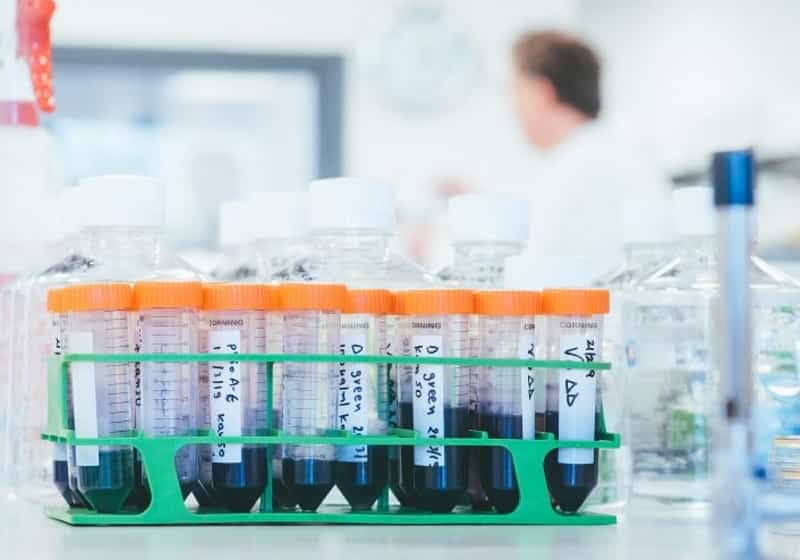
-Chemical Recycling Is Gaining Momentum
Plastic waste is a problem that the chemical industry can help to address.
One of the most promising solutions provided by the chemical industry is chemical recycling. Chemical recycling means recycling of plastics into feedstock for new chemicals. Using the chemical recycling technology kills two birds with one stone. First, we reduce the amount of plastic waste, and secondly, we improve our resource efficiency, as using plastic waste as a feedstock reduces our dependence on the non-renewable resources such as oil when making new chemicals.
Mechanical recycling is effective in tackling “pure” plastic waste such as, for example, water bottles. K2022 – Chemical-recycling – Textiles-industry
But when it comes to recycling plastic waste which is made of various layers, is heavily contaminated, or has not been properly sorted, chemical recycling is a most useful option. Combined, both solutions can significantly reduce the amount of plastic waste and improve the circularity of plastic.
An increasing number of Cefic members are working on ways to integrate this technology into their production facilities. For example, Dow has recently announced that it will start using plastic waste to produce new chemicals at its production facility in the Netherlands. We expect more companies to follow suit.
Discover new recycling routes and companies concrete examples on chemical recycling
In Europe, about 30 million tonnes of plastic waste is collected every year. But still 85% of that ends up in landfill or is incinerated. This is not only a source of CO2 emissions but is also a waste of valuable resources. K2022 – Chemical-recycling – Textiles-industry
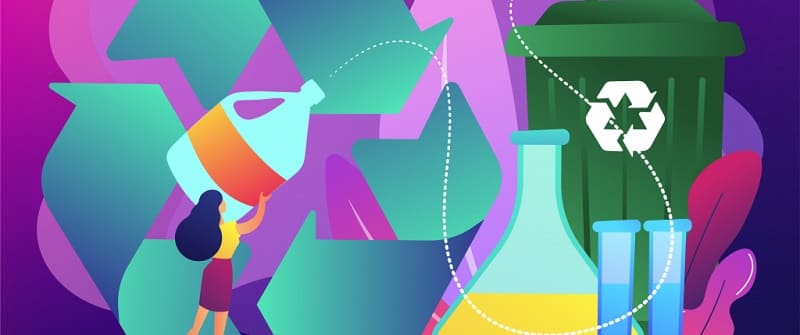
-Textile sector braces for polyester price hike
KARACHI: An expected increase in polyester yarn rates on rising oil prices may hit textile exports in the near-term, though the impact may be limited due to a recovery in global demand and competitive pricing, industry officials said.
Javed Bilwani, chairman Pakistan Apparel Forum, said polyester prices were going up not only for Pakistan but for the entire world and an increase in its prices would not affect the country’s textile sector in a significant way as an increase in the cost of doing business would be passed on to buyers. K2022 – Chemical-recycling – Textiles-industry
“Textile sector mainly uses cotton for producing goods and polyester’s share is less than that of cotton.”
Pakistan exported almost $11 billion worth of textile goods in the first seven months of current fiscal year compared to $8.76 billion in the same period last fiscal, showing more than 24 percent growth. Despite the challenges posed by the Covid-19 pandemic, textile sector has been staging a recovery following easing local and international restrictions that allowed the industry to resume normal operations amid a rising global demand.
However, the textile sector is expecting an increase in polyester yarn rates due to high oil prices, indicated a study by Pakistan Crediting Rating Agency (PACRA).
Also, according to the report, freight charges have also surged four-fold over the last 12 months. Pakistan produces natural as well as man-made fibers. Among naturally produced fibres, cotton is the most common textile raw material, while polyester is the main synthetic/man-made fiber. K2022 – Chemical-recycling – Textiles-industry
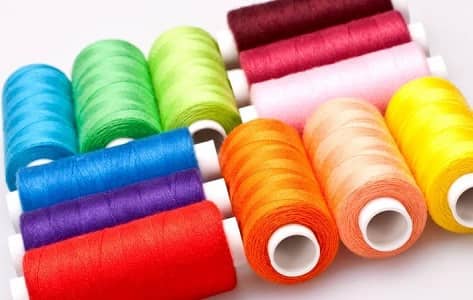
-MENA PET recycling giant BariQ signs contract for new Starlinger recycling system
Based in Giza, Egypt, the biggest PET bottle-to-bottle recycler in MENA region is expanding and upgrading its existing plant with another Starlinger PET recycling system and an additional solid-state-polycondensation (SSP) reactor.
The new recycling system, a recoSTAR PET 215 HC iV+ including a viscoSTAR 350 SSP reactor, reaches an output of 2700 kg/h and will enable BariQ to increase its total production capacity to 35,000 metric tonnes of food-grade rPET pellets per year. The viscoSTAR 350 SSP reactor – the biggest size of the latest reactor generation – provides extended processing capacity and residence time while it keeps the footprint of the new recycling line compact like the first Starlinger PET recycling line BariQ installed in 2012. K2022 – Chemical-recycling – Textiles-industry
BariQ will also upgrade its existing Starlinger recoSTAR PET 165 iV+ recycling line with a new melt filter for fine filtration and an additional SSP reactor. This setup not only increases the line’s output, it also allows the production of rPET types beyond the regular bottle-to-bottle grades, guaranteeing best decontamination results and 24/7 production of rPET with highest quality specifications. BariQ’s investment also includes the latest sorting equipment from TOMRA Recycling to ensure optimum quality of the input material.
The contracts for the new equipment were signed during a ceremony held on February 13, 2022, at the BariQ plant located in the CPC Industrial Park, 6th October City, Giza. Besides experts and international brand owners from the Middle East and African plastics and water/beverage sectors and the European equipment suppliers, the guests included also high-ranking Egyptian politicians and ambassadors of several African countries as well as the USA. Members of the management of INTRO, the parent company that acquired BariQ in 2021, and BariQ explained details of the company’s sustainability strategy and drivers for the plant expansion in presentations during the event. The expansion is planned to be finalized in 2023.
According to BariQ, the high variability of the input material and the rising quality requirements of the customers are the biggest challenges the company has been facing since it started operations in 2012. K2022 – Chemical-recycling – Textiles-industry
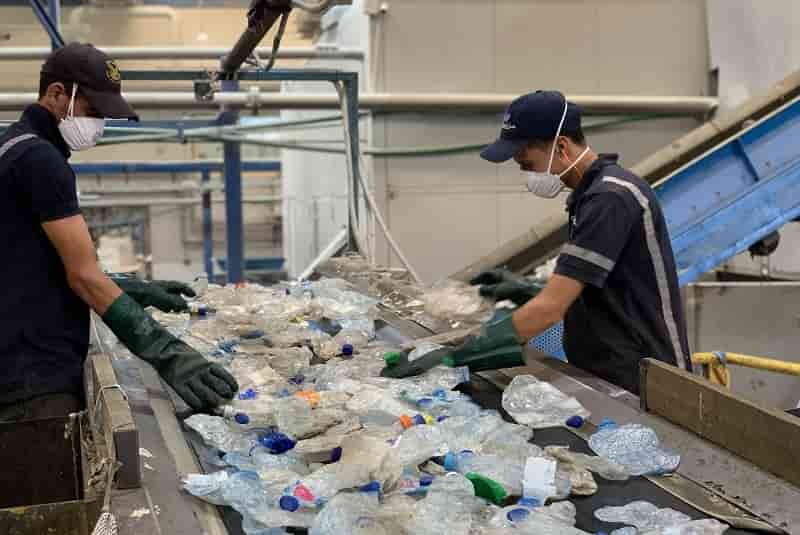
K2022 – Chemical-recycling – Textiles-industry
